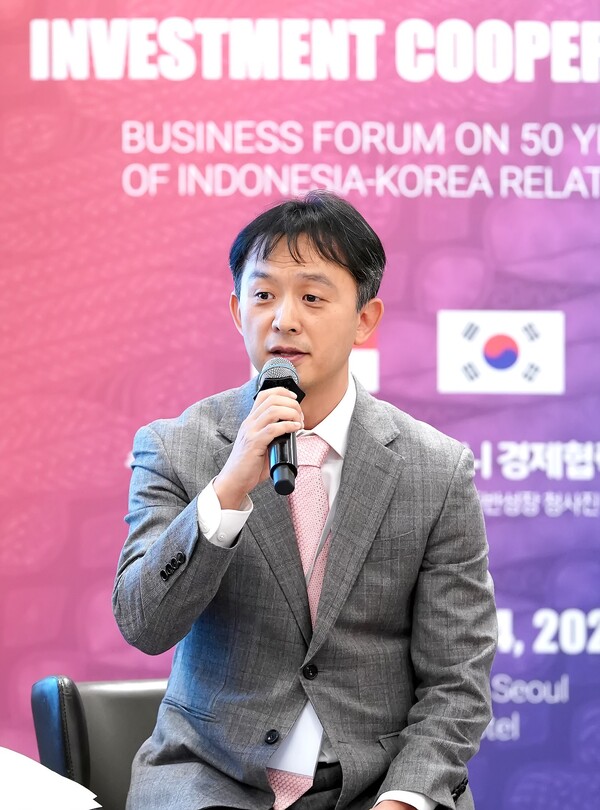Daewoong Pharmaceutical said it has announced its blueprint for shared growth as a leading drugmaker which has driven the growth of Indonesia's healthcare industry.

Daewoong said Park Seong-soo, vice president of Daewoong Pharmaceutical, was a keynote speaker at the International Business Cooperation Forum commemorating the 50th anniversary of Korea-Indonesia diplomatic ties held at a hotel in Seoul last Friday.
Park was invited as the speaker for the "Health Partnership: Healthy Partnership between Indonesia and South Korea" session to present examples of Daewoong's success and the company's vision in Indonesia with the theme "Daewoong Indonesia, Growing to Become a Mecca of Bio."
"While the global pharmaceutical market is growing by 5-6 percent annually, Indonesia, with the fourth largest human capital in the world, has unparalleled growth potential as industry watchers expect the average growth of the Indonesian pharmaceutical market to be at 11.8 percent over the next five years," Park said.
Park stressed that Daewoong was able to grow in the country by choosing a localization strategy based on core competence, including active cooperation with local companies, localization of all aspects of research, development, production, sales, actively investing in human resource development, and development of special projects such as medical beauty and cell therapy.
Notably, Daewoong established Daewoong Infion, a joint venture (JV) with the local pharmaceutical company Infion in 2012.
Park stressed that through the JV, Daewoong constructed the first biopharmaceutical factory in Indonesia and has contributed to developing the local biopharmaceutical industry, including the transfer of superior technology, and formed a foundation of direct operations such as research and development, production, and sales.
"The company has also been deeply involved in Indonesia's beauty and cosmetic surgery business in Indonesia to generate high added value in the Indonesian biopharmaceutical industry," Park said. "Through the investment and ongoing construction of production facilities in Bali and Cikarang, Daewoong plans to transfer core beauty-related technologies, such as new product development, production and export of botulinum toxin."
This is expected to contribute to the dissemination of the latest medical technology and create jobs in Indonesia, Park added.
Park added that Daewoong is pushing for active open collaboration with leading local institutions to conduct localized R&D.
"This strategy involves a five-fold expansion of previous open innovation partnerships with Indonesian universities, to strengthen global R&D capabilities through collaboration with the best local talent," Park said. "The company plans to open the research institute for Drug Development this year at the Bandung Institute of Technology, and the institute will strengthen its capabilities by applying Daewoong's coated tablet technology, nucleus technology, and single-coated tablet technology."
While serving as a drug research training center for local universities, the institute will also operate as a space to train global talent.
Park also shared a plan for talent development and hospital establishment going forward.
"Daewoong believes that the health partnership formed through this plan can contribute to the development of the Indonesian medical industry and can continue to create a positive economic impact," he said.

